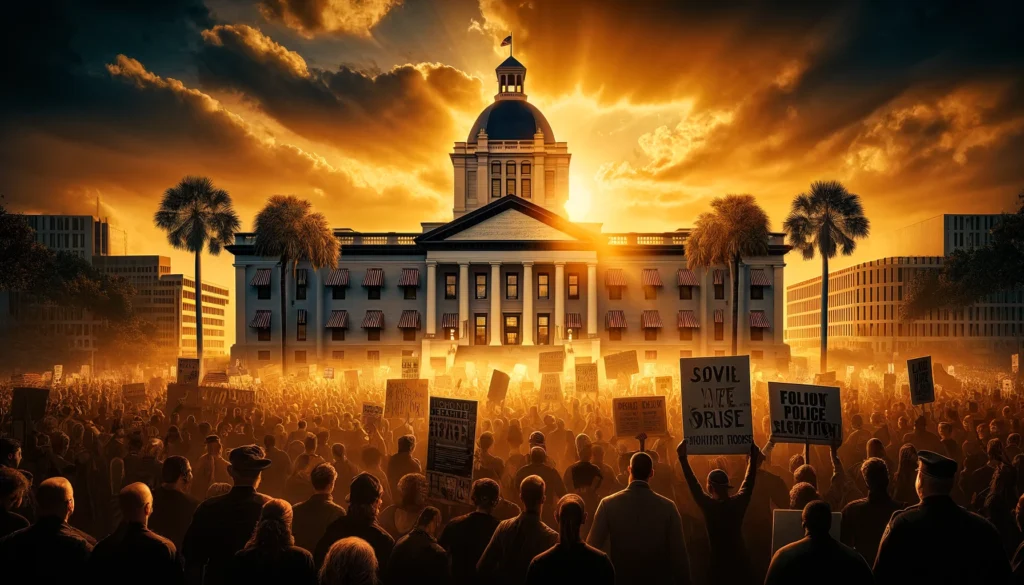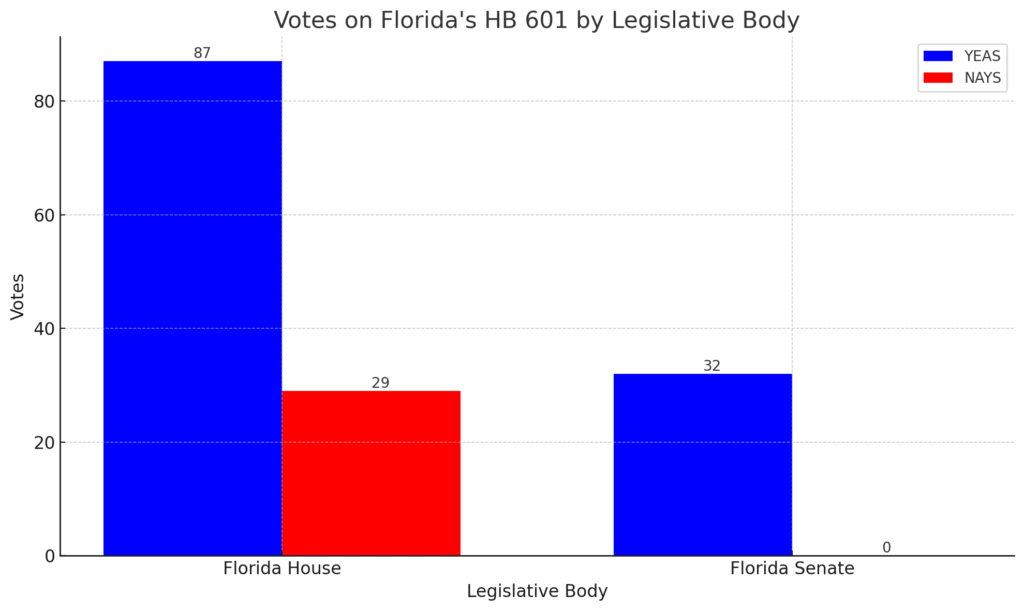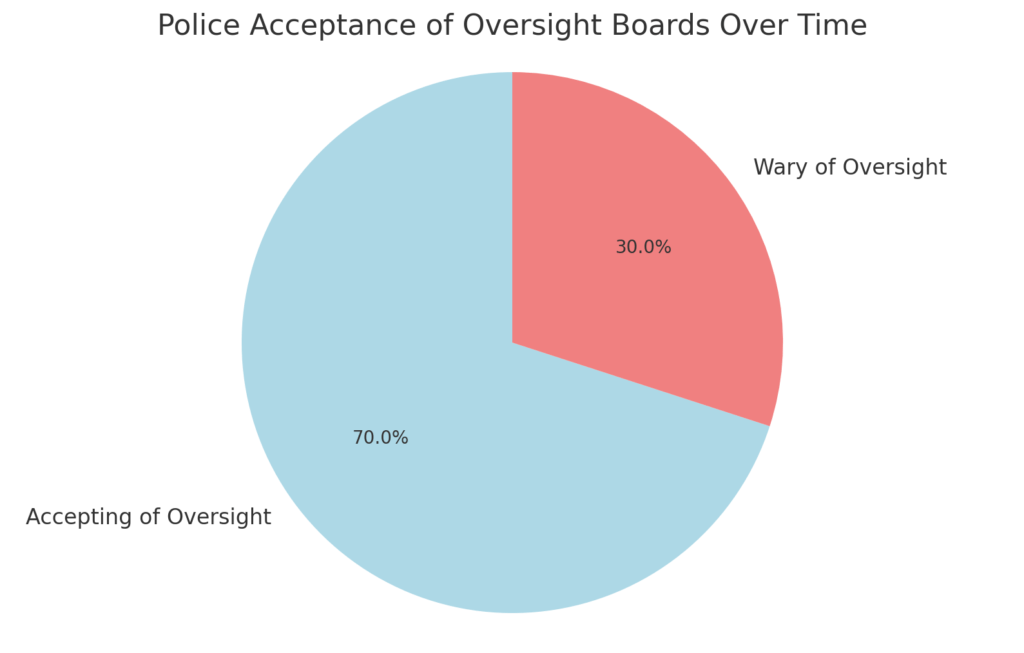
Explore the sweeping changes in Florida’s police oversight laws and their profound impact on civil liberties and accountability
By Darius Spearman (africanelements)
Support African Elements at patreon.com/africanelements and hear recent news in a single playlist. Additionally, you can gain early access to ad-free video content.
Introduction: The Turning Tide of Civilian Oversight in Florida
Recent legislative changes in Florida have sparked significant concern among civil rights advocates and the general public. Specifically, the enactment of HB 601 and SB 184 by Governor Ron DeSantis marks a pivotal shift in the state’s approach to policing and civilian oversight. Consequently, these changes raise crucial questions about the future of civil liberties in Florida. Moreover, they could influence similar legislation across the United States, setting a concerning precedent for the erosion of public oversight mechanisms.

Historical and Legal Analysis of Florida’s New Police Legislation
Evolution and Role of Oversight Boards
The establishment of civilian oversight boards marked a pivotal turn towards transparency in Florida. Initially, these boards emerged as crucial mechanisms for ensuring police accountability. Moreover, their development accelerated following national outcry over police misconduct cases, such as the tragic murder of George Floyd.
“In Florida, there are 21 such boards, and half of them were formed since the protests over the murder of George Floyd in the summer of 2020.” (Florida Phoenix)
Historical Roots of Civilian Oversight
These boards weren’t born overnight. Instead, they were the response to a growing demand for police transparency and accountability. Furthermore, their formation often followed high-profile incidents that shook public trust. This reaction highlights a communal push to safeguard civil liberties and enforce accountability through civilian-led scrutiny. Therefore, their foundational purpose was clear: empower citizens and enhance oversight.
Impact of Legislative Changes on Oversight Boards
Recently, the landscape shifted dramatically. For instance, with the enactment of HB 601, the operational scope of these boards faced severe restrictions. Hence, this legislation represents a significant rollback of their authority, particularly in their ability to investigate and hold law enforcement accountable. This reduction in power raises substantial concerns about the future of police oversight in Florida.
Analyzing the Broader National Implications
While some states continue to enhance civilian oversight, Florida appears to be moving in the opposite direction. Significantly, this divergence could set a concerning precedent for other states evaluating their approaches to police oversight. Thus, these laws could prompt a nationwide reevaluation of how civilian oversight is handled in relation to law enforcement agencies. Consequently, the ripple effects could extend well beyond Florida’s borders, affecting national policy debates on police reform and civil rights.
Furthermore, by comparing Florida’s trajectory with other states, we see a stark contrast in legislative priorities concerning civil liberties and police accountability. Consequently, this comparison is essential to understanding the broader implications of Florida’s legislative actions.
Curtailing Civil Liberties Through Legislative Changes
The enactment of HB 601 marks a decisive shift in Florida’s approach to policing and civil oversight. Particularly, this legislation significantly narrows the scope of civilian boards. As a result, these changes directly challenge the fabric of civil liberties in the state.
“By banning independent citizen review boards, Gov. Ron DeSantis and legislators in Tallahassee are once again taking away the freedom of countless Floridians, whose voices are being silenced and whose safety is now at risk.” (Florida Phoenix)

Restricting Oversight and the Implications for Civil Rights
The new law fundamentally alters how civilian boards operate. Importantly, it strips these bodies of the ability to independently investigate police misconduct. Consequently, this limitation is more than a procedural change; it’s a direct hit to transparency and public oversight.
“These organizations will now largely be prohibited from receiving and following up on complaints.” (NewsOne)
Also, by restricting these reviews, the state curtails a vital check on police power, raising serious concerns about civil rights protections.
“…the oversight boards can’t subpoena witnesses and documents, and none have any actual disciplinary power.” (Florida Phoenix)
The Broader Impact on Florida’s Commitment to Civil Liberties
Moreover, these legislative changes may erode public trust in law enforcement. Essentially, when oversight is perceived as ineffective or heavily biased, public skepticism can increase. Additionally, this skepticism can foster a climate of distrust and fear, undermining the very principles of justice and equality that form the cornerstone of civil liberties. Social justice groups and activists have expressed strong opposition, citing concerns over accountability and public safety.
“We know that civilian review boards are often the last line of defense for Black people to hold rogue law enforcement officials accountable for misconduct.” (Florida Phoenix)
Impact on Florida’s Political Landscape
Furthermore, these legislative changes could reshape the political landscape in Florida. For instance, they may influence voter perceptions and impact future elections. Additionally, the laws could redefine Governor DeSantis’ political legacy, positioning him as a pivotal figure in national discussions on policing and civil oversight.
Constitutional Concerns and Future Legal Battles Over Police Oversight
Potential Legal Challenges to HB 601 and SB 184
Looking ahead, these changes will likely face legal challenges. Therefore, these potential legal battles will be critical in defining the limits of legislative power over civil oversight mechanisms. Thus, the outcomes of such challenges could set important precedents for civil liberties across the United States.
The enactment of HB 601 and SB 184 could potentially infringe upon constitutionally guaranteed freedoms. Notably, these laws restrict civilian interaction and oversight, possibly impeding freedom of speech and assembly. Therefore, these legislative changes are poised to trigger a slew of legal challenges, focusing on their alignment with constitutional protections.
“Equal Ground, a social justice organization aimed at protecting the rights of Black Floridians, bashed DeSantis’ approval of the bill.” (Florida Phoenix)
The Long-Term Impact on Civil Liberties
Furthermore, the outcomes of these legal battles could profoundly influence the scope of civil liberties in Florida and potentially across the United States. Thus, the judicial decisions regarding these laws will be pivotal, setting precedents that may either strengthen or weaken the public’s ability to oversee law enforcement agencies. Therefore, the significance of these legal confrontations extends far beyond the immediate legislative context.
Moreover, legal experts and civil rights organizations are likely gearing up to contest these laws. In fact, they might argue that restricting civilian oversight boards from conducting independent investigations directly contravenes the principles of transparency and accountability essential to a democratic society. Consequently, the courts will play a crucial role in addressing these contentious issues.
Conclusion: The Broader Implications of Florida’s Legislative Changes
In essence, the recent legislative measures in Florida signify a critical moment for civil liberties and police oversight nationwide. Importantly, these laws could potentially reshape how other states and policymakers view and implement civilian oversight of law enforcement. Furthermore, the ongoing legal challenges and public debates surrounding these changes will likely play a key role in determining the balance between police authority and civil rights. Therefore, the outcome of these debates will not only affect Floridians but could also impact the national landscape of civil liberties and democratic accountability. Consequently, the vigilance of civil rights organizations and the engagement of the public remain more crucial than ever.
